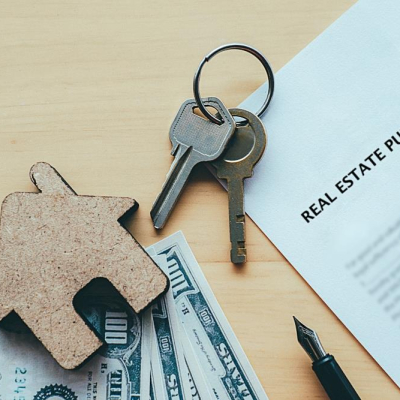5 Essential Steps to Buying International Property

You've heard all the advice about how to buy property: Buy in a great location, understand market comps and negotiate a favorable price. And all of these are good, solid ideas. But this article is not about buying property in a familiar market, it’s about buying international property in a foreign country, where things are more, well, foreign.
Of course some aspects of the international real estate landscape will feel familiar - like the terminology of agents, closings, property registrations, title insurance and so on - but if you dig deeper you’ll find some very big differences.
Here’s why:
- International property markets are typically less efficient. Across Latin America for example there are few examples of countries with centrally managed property listing databases (similar to the US Multiple Listing Service for example).
- It's hard to get hold of official sales statistics in many foreign countries making it difficult to build an accurate picture of value or to understand price trends.
- In many emerging markets almost anyone can sell real estate however unqualified they may be (even if the law says otherwise).
Knowing how the market works on the ground – and then adjusting your buying strategy - is the best way to ensure that the great deals won’t pass you by.
There are five parts to this:
1) Start with the “why”
Clarifying your goals upfront makes finding the right property a whole lot easier. There are many reasons to buy overseas property and the same property can’t possibly fulfill all of them.
If for example, your goal is to find undervalued property in an area poised to grow, you’ll be targeting a particular set of properties (and locations). But if you’re looking for a retirement home located close to services and amenities, another set of properties will make most sense. And if you’re after an income generating vacation home in an area with solid visitor numbers, there’s another set of criteria to evaluate properties against.
A clear goal allows you to build complete profile of your ideal property and where it is located. This profile will then shape everything you do as an investor and your decisions will become clearer.
2) Build a spreadsheet
This involves taking a step back and really looking at what constitutes value in the marketplace. (Remember you can't simply head to zillow.com and get a print out of sales trends, days on the market and market value estimates for your target properties.) In the absence of reliable market 'comps' your best bet is to build your own market analysis spreadsheet. Start with asking prices for listings you find online and then add properties that you view in person. With each property, you're fleshing out your market knowledge and becoming better at discerning value.
And there's an added benefit: By focusing on your spreadsheet you're ensuring that numbers drive your investing strategy, not emotion – an approach that is particularly important in international real estate.
3) Position yourself “in the market”
In most international real estate markets, listing information is not uploaded to a central database. Agents maintain their own private database of listings and this information is not always shared efficiently.
This makes it important to choose your agent carefully. Make sure they are active in the local marketplace and have the expertise and network to bring you all properties for sale that fit your investment criteria.
To be truly 'in the market' it’s a good idea to tell everyone that you are looking for property (yes, even your taxi driver). That way you'll be building a strong local network of contacts to help round out your market knowledge.
4) Pay only for what you can see
Imagine you're eyeing up an oceanfront lot in a master planned development. The developer has pointed out the location of the future clubhouse, shown you the rendering of the planned spa and provided assurances that the road to the airport will be fully paved in the next few months. At this point a good question to ask is, "What can I see? Right now? Today?”
If you’re considering an oceanfront lot, you'll see the ocean, some sand and a parcel of land. If you're happy without the clubhouse, the spa and the paved road, then move forward. In other words, buy only what you can see. If the development rolls out as planned, consider that an upside benefit.
5) Don't skimp on due diligence
The two most common due diligence mistakes when buying property in a foreign country are using the seller's lawyer and not taking out title insurance. These may seem obvious. But when a seller recommends that you use his or her own attorney, it’s easy to agree (especially if the seller offers to pay the legal fees). Resist the temptation; it's crucial that you have independent representation at the closing meeting. And insist on title insurance.
Title insurance is not a requirement in most international real estate markets, which means it often falls off the list. But there are just too many examples of buyers closing on properties with murky titles - the kind of murkiness easily identified via a simple title check. Taking out title insurance forces your lawyer to dig deeply into the title history to make sure you can move forward with confidence.
Following these 5 steps will set you on the right track. But if you can take just one thing from this article it's this: Slow down.
International real estate markets have the habit of making buyers throw caution to the wind in their rush to snap up a property deal. It's hard to ignore that rush of emotion when the opportunity to buy a slice of paradise presents itself. But in the absence of reliable data, in a marketplace that is relatively un-regulated and one that you are unfamiliar with, it takes time to fine-tune your investment sense.
It may sound counterintuitive, but slowing down will put you well ahead of more hasty buyers.
By Claudia Gonella, an Associate with Coldwell Banker Nicaragua. If you'd like to learn more about opportunities in Nicaragua check out the Free Insider Tips Series for Nicaragua Real Estate Investors for valuable information on Nicaragua neighborhoods and the property buying process.
- My Life Abroad -
A selection of expat stories

"A fun compulsive read!"
J. Matcham, Amazon
"I strongly advise people ready to live abroad to read this book!"
Patrice, Amazon

 The Ultimate Guide: Buying Real Estate as an Expat
The Ultimate Guide: Buying Real Estate as an Expat  Basics to Real Estate Investing for the Long Term
Basics to Real Estate Investing for the Long Term  How to Avoid Real Estate Scams
How to Avoid Real Estate Scams 5 Top International Education Systems For Expat Kids
5 Top International Education Systems For Expat Kids